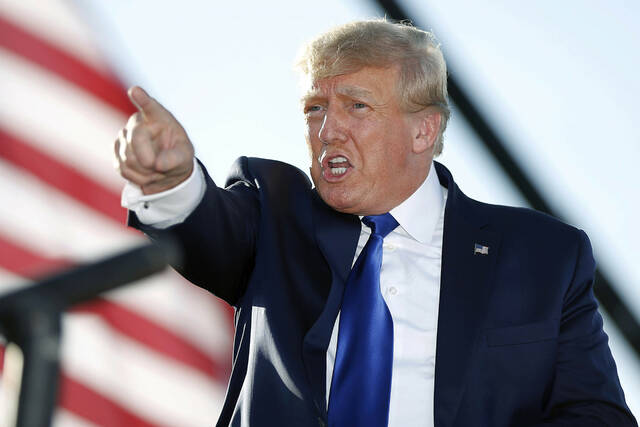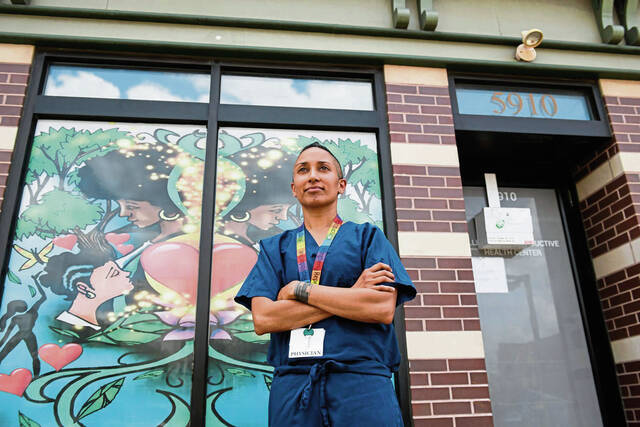In October of 2016, a Washington Post headline referred to the presidential race as the “rape election.” The numerous sexual misconduct allegations against a presidential candidate, and the ubiquity of discussions of sexual violence in the context of that election were unprecedented. However, the election of Donald J. Trump, and the #MeToo movement that followed in 2017, have since opened the floodgates for frank conversations about sexual violence.
The primaries for the 2022 midterm elections are underway. Unsurprisingly, once again, allegations of sexual misconduct are issues that voters will have to weigh in their assessment of the candidates and their fitness to govern. At least nine candidates have already been accused across the U.S. Further allegations will surely follow.
In our new book, “Defining Sexual Misconduct: Power, Media, and #MeToo,” we examine four decades of media coverage related to sexual misconduct allegations against powerful men. Our analysis reveals patterns of politicization of sexual misconduct that serve to minimize victims’ experiences of harm and enact secondary trauma.
In the context of political campaigns, victims’ stories are leveraged for political gain while no concrete steps are taken to address the harms that they experienced. The political discourse focuses on whether or not the allegations against one candidate are “as serious” as the allegations against a political opponent or previous politician, with no recognition that every violation is an experience of harm that should not be tolerated.
Women who make allegations in the context of a political campaign are slandered and accused of making up politically motivated lies. It is an important truth that even if a choice to come forward is politically motivated — aimed at preventing an abuser from gaining a position of power where they may abuse others — this does not make the allegations lies. But women who come forward continue to face harassment, abuse, and threats of violence for speaking their truth.
All of this combines to make public allegations against powerful men a difficult and dangerous endeavor, especially in the midst of a political campaign. Our analysis of voter responses to allegations found some interesting and troubling trends.
On the one hand, allegations of sexual misconduct against progressive candidates who present publicly as allies to women are far more likely to be met with censure and to destroy campaigns than allegations against conservatives. In part, this is a function of the fact that the communities who support and vote in favour of progressive candidates take such issues as sexual violence more seriously in the overall frame of their political priorities and seek to hold individuals accountable for their behaviour. Such allegations are viewed as inconsistent with the candidate that voters “know” and discredit them by shaking the very foundation of their integrity.
On the other hand, supporters of conservative candidates tend to prioritize other political concerns that their candidate stands for (such as restricting abortion or immigration policies). They do not view allegations of sexual misconduct as necessarily requiring accountability nor disqualifying the candidate from office, particularly if the allegations are historical or they do not meet the bar for criminal charges.
Further, when the allegations are wholly consistent with the candidate’s public persona, they are easily integrated into what the voters “know” about that candidate. Ironically, such allegations do not erode the candidate’s integrity if the individual has been openly misogynist, as the allegations against Donald Trump exemplified best. Repeatedly, voters were told that this was “Trump being Trump” and that they should expect nothing better. Voters who minimized the importance of sexual violence, prioritizing other concerns, and erasing the harms to women, handed Trump the White House. And we live with that political legacy.
As we move forward with the midterm elections, there are key lessons to be learned if we wish to avoid the kind of politicization that marginalizes and trivializes the experiences of survivors of sexual violence. First, we must hold political candidates and incumbents on both sides of the spectrum accountable for their use of victims’ stories and responses to misconduct in their parties. Party leaders must demonstrate by their actions, not just their words, that sexual misconduct will no longer be tolerated in 2022.
Media also bear a certain responsibility in shaping the conversations that we have about sexual violence. Let’s make those conversations about the harm that was done and what is necessary to address it – and not about whether that harm is less or more than the harm perpetrated by other politicians.
It remains a moral duty to protect victims from being silenced and to safeguard their ability to voice their experiences of sexual violence, but make no mistake, these stories do not belong to politicians or pundits, and we must ensure that they are not leveraged in exploitative ways. Survivors of sexual violence deserve better, and we must demand better on their behalf.
Stacey Hannem and Christopher Schneider are the authors of “Defining Sexual Misconduct: Power, Media and #MeToo.”








